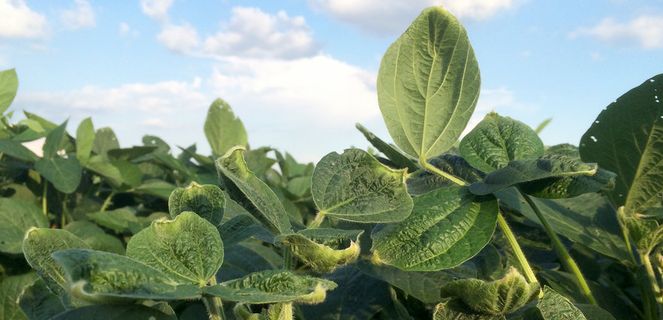Monsanto agrees to $400 million dicamba settlement
by June 24, 2020 3:56 pm 1,639 views

Monsanto, a subsidiary of German pharmaceutical company Bayer, announced Wednesday (June 24) it has agreed to a $400 million settlement with farmers who suffered damage to millions of acres of crops near those sprayed with the controversial dicamba herbicide.
The company has agreed to pay soybean producers and additional amounts to certain producers of other crops who suffered dicamba damage from dicamba sprayed over-the-top of dicamba-tolerant soybeans or cotton from 2015 through 2020.
Monsanto will also pay litigation expenses, attorneys’ fees, claims administration expenses and other costs in addition to the amounts provided to qualified claimants.
Producers who make a claim will be required to produce evidence of dicamba symptomology and yield loss. It is expected that the claims process will begin later this year after the 2020 harvest has been completed. Details and timing issues are still being worked out. More information is available at this link.
In early June, the U.S. Ninth Circuit Court of Appeals vacated registrations for three brands of dicamba — including Monsanto/Bayer’s Xtendimax — after finding that the U.S. Environmental Protection Agency (EPA) mishandling of the registration process resulted in more than one million acres of crop damage in 18 states.
In 2017, 3.6 million acres of soybeans on 2,708 farms nationwide were damaged by dicamba, according to the estimate of University of Missouri crop science professor Kevin Bradley.
Dicamba use has been a controversial topic in Arkansas for several years. It was banned during the 2018 growing season after many problems during the previous year.
The Arkansas State Plant Board (ASPB) made the decision to ban dicamba after it received about 1,000 damage complaints in May 2017, primarily in northeast Arkansas, potentially caused by dicamba drift. The decision was highly controversial, but the board decided the risks were too significant. Dicamba is a weed control herbicide, suspected of causing damage to other crops. ASPB, which investigates and reviews complaints, enacted higher fines on improper dicamba applications meant to serve as a significant deterrent to potential violators.
Dicamba has been banned in several states. It has been used as a herbicide for more than 50 years to manage 200 broad leaf weeds. It is a Weed Science Society of America Group 4 synthetic auxin — a plant hormone that causes plants to exhibit uncontrolled growth, according to the University of Arkansas. It is more volatile in warmer climates.
